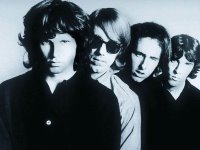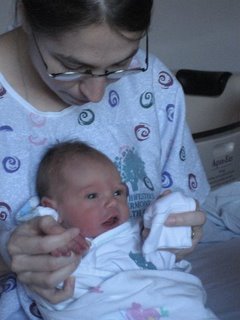 If you were ever into the Doors, in that way only misfit teenage boys can be, you probably know the outlines of the Jim Morrison creation myth. You know more than that he was a film student, or that he had dead Native American spirits haunting his soul. You know that he was a Navy brat, that his father was an admiral or something, and you probably guessed all sorts of horrible things about what that would mean for his upbringing. How it led to all that ugliness at the height of “The End” and was the torturous forge that created his Art.
If you were ever into the Doors, in that way only misfit teenage boys can be, you probably know the outlines of the Jim Morrison creation myth. You know more than that he was a film student, or that he had dead Native American spirits haunting his soul. You know that he was a Navy brat, that his father was an admiral or something, and you probably guessed all sorts of horrible things about what that would mean for his upbringing. How it led to all that ugliness at the height of “The End” and was the torturous forge that created his Art.So I was surprised to see a news article that quoted the Admiral himself commenting on his son’s life and work. You may have been surprised that he betrayed real affection. “We look back on him with great delight… the fact that he’s dead is unfortunate but looking back on his life it’s a very pleasant though,” Admiral (ret.) George Morrison said in a new authorized band memoir.
Of course, it sounds like there was a little wishful thinking there. “He knew I didn’t think rock music was the best goal for him,” the admiral said. “Maybe he was trying to protect us.” A part of me wonders if he was completely aware of what his son did… and sang.
I think sister Ann got closer to it: “He liked mystique, too. He didn’t want to be from somewhere.” But I’ll go farther with my conjecture: that it is too bad he didn’t live long enough to outgrow his moody adolescence.
The tragedy of Jim Morrison is the tragedy of the band. As a fan in good standing, I’d chart their history like this: two albums of sheer youthful explosion. That mix of youthful energy and insight coupled with not inconsiderable skills that gave us two of the best rock albums of the period. That was followed by slump, in which they produced two albums that are kind of floundering. The first is at least interesting and catchy in its searching, the second is a crashing failure. Then they grew up. Suddenly they produced two very strong albums with maturity, a sense of humor. It is an interesting trajectory, considering the weird pressure cooker of the music industry: they did all that in the midst of a relentless touring and recording schedule with lots of people treating them like meal-tickets. And Morrison’s death – like those of the other big ticket rock stars – was stupid and avoidable. (But kudos to the rest of the guys for soldiering on for two more, terrible, Jim-less albums).
And as with everything that I seemed to like as a teenager, it is hurt by its fans, and by the weird fact that they keep coming – it seems a new group of kids hits the beaches every ten years or so. “Every generation has its Doors fans,” said Dave Brock, frontman of a Doors tribute band in
Lester Bangs was onto it during the first big Doors revival, writing in August 1981 about the first Second Coming, including the hilarious rumor about a biopic starring John Travolta. He wondered about why so many kids were so into this stuff, and came to a snap judgment, taking contemporary to task for its “relative lack of passion, expansiveness, and commitment.” “There is a halfheartedness, a tentativeness, and perhaps worst of all a tendency to hide behind irony that is after all perfectly reflective of the time, but doesn’t do much to endear these pretenders to the throne.” (in 1981?)
He writes that the Doors were for the “the one guy [who] used to sit there all day and night toking on his doob and intoning things like ‘Genius… is very close to… madness.’” He wishes that Morrison was a better singer, and teases out the sense of irony and humor the band had at their success and pretension. And in the end…
Perhaps what we finally conclude is that it’s not really necessary to separate the clown from the poet, that they were in fact inextricably linked, and that even as we were lucky not to have been around any more than our fair share of ‘Dionysian’ infants, so we were lucky to get all the great music on these albums, which is going to set rock n’ roll standards for a long time to come.
The Kids in the Hall:





